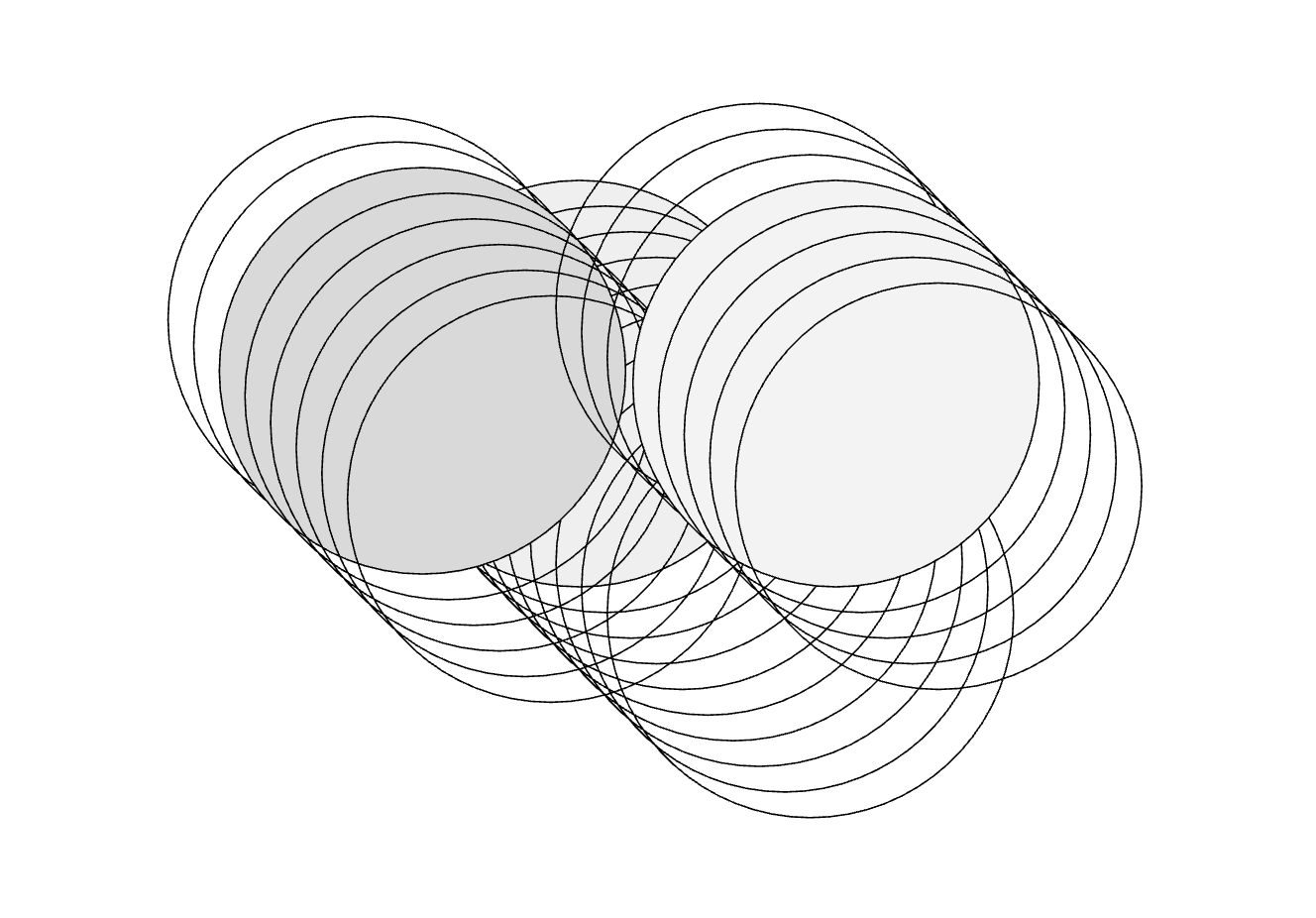Scavenging for strategy

Ezra Klein and the mirages of losing
I think any conversation between Ezra Klein and Ta-Nehisi Coates is worth paying attention to, but one precisely during a moment of national crisis is likely a precious resource. I was particularly interested in listening to this latest conversation to help answer a question that’s been nagging at me for the last few weeks: “Is Ezra Klein okay?”
I’m not just concerned about Ezra because I want him as an individual to influence our side in positive ways (and even to find calm and peace!), but because he tends to both represent and lead certain patterns of thinking. Where I’ve long found him to be one of the most reasonable of our national political commentators, one most able to contextualize his own position and priors, his arc since the assassination of Charlie Kirk has sounded more like his less enlightened peers. In his first column, in subsequent podcasts of his own and others, and now here, Klein seems to be deeply pained by the present we’re in, desperate for diagnosis of what went wrong, and searching for a solution among the catastrophe.
This episode, in particular, explains more of the state of his psyche. In doing so, it offers a helpful case study to understand a tendency that’s far broader in our politics: that after defeat and disaster, we grasp for a solution. And in grasping for a solution, we can easily mistake our opponents’ characteristics for a winning strategy of our own.
Where he’s usually such a rigorous and grounded thinker, Klein here seems to be in a panic and scavenging for strategy:
“For me, one of the central questions animating the show this year — and that has been animating it since the election — is: How did we get here? How did we let these people get back into power? What went wrong in our approach to politics that we ended up here?”
Klein’s central conclusion, even though he isn’t quite ready to say it this way, is that we lost power because we didn’t do what they did. We didn’t practice politics the way Charlie Kirk did. There are many problems with this argument that arise in course of the conversation – often about the morality of such an approach, or the bright lines of acceptability – but I want to focus on two major misconceptions about strategy that Klein presents but Coates never quite takes on.
1: style is the same as strategy
Although Klein hopes to interrogate what “went wrong in our approach to politics,” he immediately narrows politics to an aesthetic, affective, or tonal question. In his assessment, Kirk represents effective politics: “there was something that I respected in what Kirk was doing — like going in, having debates, using them opportunistically … He was doing politics. He was trying to persuade people.” To Klein, this perceived willingness to engage is “doing politics the right way” because it engages everyone as viable political subjects to win over. He contrasts Kirk with Hilary Clinton and her comments about “deplorables,” which symbolizes for Klein a kind of losing political culture. “What Clinton was saying there came from somewhere,” he says, “It came from the culture that had emerged. It got worse over time. And then I think it really contributed to us losing.” Taken together, he concludes that there is a core presentational and rhetorical scourge that thoroughly rots the Democratic brand – a dismissive, scolding tone – which explains why Democrats lost:
“Even before the question of what your policies are — and I believe this very deeply — there is a question of whether or not people feel like you respect them and like them, even if they disagree with you. Before people will give you power, they don’t even ask if they like you, they ask whether you like them. And I think a lot of the country feels we don’t like them.”
While perhaps there’s a question out there about which elites are invited to which panels, I don’t think that’s what’s the thrust of the concern here. Rather, Ezra is preoccupied with what it means to win over the public and believes there’s something in what Kirk did that worked to that effect.
But what exactly worked?
Klein seems to have projected a political strategy for the victorious GOP based on a perceived characteristic of a political commentator. Leaving aside whether Kirk’s performed openness was representative of actual openness – be your own judge – it’s pretty hard to see openness in either the electoral agenda of Trumpism or its cult of personality. You can call Clinton’s approach sneering and nasty, but those words wouldn’t have meaning if they didn’t apply just as well to Trump’s. The winners did not practice some kind of brave politics-across-differences, holding traveling town halls to listen to American woes of all stripes. They held rallies where they singled out exactly who they would persecute with their power. Indeed, the major animating force of the winning right-wing cause was not inclusion, but exclusion – and not just in style, but in substance.
It is not surprising that a winning coalition can contain a Charlie Kirk performing one style of politics while Donald Trump performs another, precisely because it is not style that holds these coalitions together – people are far too different for that – but ideological commitments. The problem is not drawing lines, the problem is having something you’re drawing lines around.
Klein says that Democrats’ losses “requires a very fundamental rethinking — a disciplined, strategic rethinking — of: What have we been doing? Why are people preferring this to us?” This is undoubtedly true – the Democratic style has been bad – but it is incomplete. More importantly, if you’re willing to see how both sides' style isn’t exactly appealing, the major asymmetry is what we haven’t been doing (with any style). As heinous as it is, the right wing uses their style to express a very clear vision of America (white, patriarchal, individual, etc.) and very clear methods for achieving it (mass deportation, persecution of trans people, etc). They describe a goal, a strategy, and a coherent worldview to guide their politics – the very substances that a campaign sells. The Democratic Party has not proposed a real vision since at least the election of Barack Obama – who did bless the party with extraordinary style – and nothing close to as comprehensive of a vision since before “triangulation” became party orthodoxy. While style and substance may inform or reflect one another, they are not substitutes. Adopting a perceived "debate me" style will not fill the hole where ideological commitment needs to be – it might, in fact, dig an even deeper one.
2: the latest winning strategy is the only way to win
While I think Klein’s major preoccupation right now is actually a stylistic one, he is among the many wondering if Democrats also ought to adopt the victors’ substantive positions.
“To be very clear. I think in a place like Nebraska, you should try to run some pro-life Democrats. I wish people, instead of saying that an expressive or strategic question in politics was betraying or abandoning the people we wish to protect, I wish what we said was: We lost power in a way that allowed Donald Trump to drive the Supreme Court to a 6-3 Republican majority, and that majority overturned Roe v. Wade and actually abandoned all these people, actually [expletive] them over.”
Here Klein is simply reversing the fallacy of strategy and style described above: he’s treating a substantive position (pro-life) as simply an aesthetic or expressive question that Democrats could simply adopt in order to win what they want. How would increasing a bi-partisan consensus in favor of pro-life politics advance pro-choice outcomes and somehow produce a more favorable terrain for pro-choice politics on the Supreme Court? It wouldn’t, unless your entire political strategy is for your party to consistently lie about their commitments in order to gain power just so that they can do the opposite – a theory Klein seems to use here as the explanation for how Obama won a constitutional right to same-sex marriage, and a theory that a regular Ezra Klein would know is as waterproof as a sieve.
Instead, he’s expressing the common instinct of the loser to seek enlightenment from the winner. In this case, that because the Right won these elections by scapegoating and sacrificial politics, that is the way to win elections. In reality, there are innumerable other factors that add up to the direction of political power besides strategy – global anti-incumbency, pandemics, candidates (and replacement candidates), media derangement, to name a few. Moreover: this instinct also disregards both the innumerable alternative strategies that could have done even better than the winning one and the fact that the opponent’s strategy may not work for you, for the very substantial reason it is aimed at other objectives! While Coates may insist a bit too strongly for my liking on widening our view to a historical explanation for this moment, Klein has zoomed so far in to the characteristics of what has just happened, he’s neglecting the possibility that everything currently out of the frame could, if we changed the frame, be in the center of it.
Why? Why would someone as clever as Klein – and many others in politics and media – fall for fallacies like these? I am not talking here about the right-wing Democrats who have simply been waiting for an opportunity to adjust politics back towards their liking. I’m talking about the people on our side who are trying to grapple with how we win power to secure the rights and country we want. I can’t know Klein’s true state of mind or motivations, but I’ll offer what I think would be a sensible explanation. In the wake of defeat, in the crumbling of our norms and institutions, people grasp for explanations. Comprehensive ones are the most comforting; simple ones are the most satisfying; the winners’ ones are the most accessible. Ironically, as Klein and others make the case for political discomfort, I think they’ve chosen the most comfortable option – not a messy interrogation of complex strategy, but the thing they think they see, right now, on the very surface.
So: is Ezra Klein okay? I’m not sure, but I am sure he’s human. In the wake of this political violence, Klein tells Coates that “I thought about me, I thought about you. I thought about all kinds of people I know.” I think that’s a very human response – and perhaps a suggestion of how recent events have shaken his work. I hope it’s a detour and not a direction. I’m sure we’ll need him to lead again: plenty of other worst tendencies of this party still to address.



